8 things to do right after a heart attack

According to the Centers for Disease Control and Prevention, about 735,000 Americans have a heart attack every year. That’s one every 43 seconds or so. But not every event is fatal. Your chance of survival goes up—and complications go down—if you get to a hospital as soon as possible.
But don’t just sit and wait after you’ve called 911. There are steps you can take in the… Show More
According to the Centers for Disease Control and Prevention, about 735,000 Americans have a heart attack every year. That’s one every 43 seconds or so. But not every event is fatal. Your chance of survival goes up—and complications go down—if you get to a hospital as soon as possible.
But don’t just sit and wait after you’ve called 911. There are steps you can take in the first minutes, hours and days after a heart attack to help you survive and recover, says Kristofer Hillegas, DO, a cardiologist with Our Lady of Lourdes Medical Center in Camden, New Jersey.
Show Less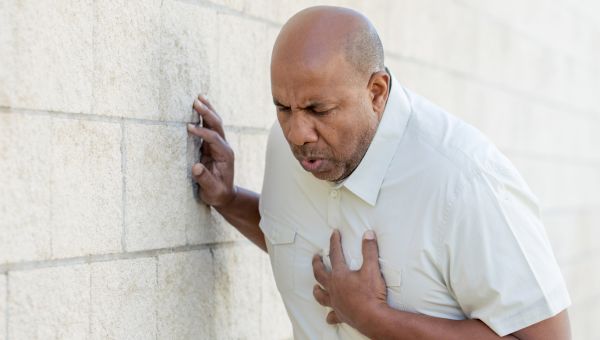
Recognize the signs
How do you know you’re having a heart attack? You might not unless you can identify the signs—including the less-common ones. “Not everyone has the classic presentation of angina, or chest pain,” says Dr. Hillegas. “Both men and women get atypical symptoms.”
Chest pain, shortness of breath and pain… Show More
How do you know you’re having a heart attack? You might not unless you can identify the signs—including the less-common ones. “Not everyone has the classic presentation of angina, or chest pain,” says Dr. Hillegas. “Both men and women get atypical symptoms.”
Chest pain, shortness of breath and pain in the left arm, shoulder, neck or jaw are the most common. Women are more likely than men to get atypical symptoms such as:
- Cold sweat
- Unusual fatigue
- Light-headedness
- Nausea
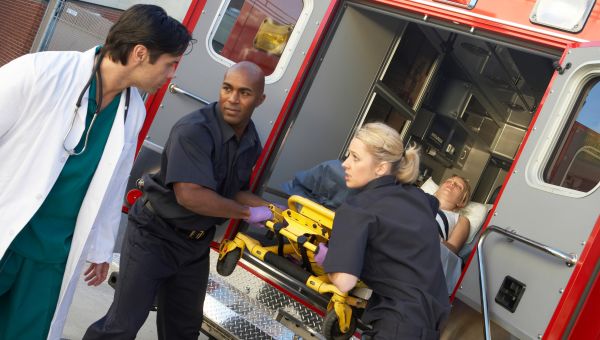
Call the professionals
Call 911 as soon as you think you’re having a heart attack. Cardiologists have a saying: time is muscle. “Once the blood supply and oxygen are cut off for any muscle, including the heart, tissue starts to die,” says Hillegas. “The sooner blood flow can be restored, the more likely it is to preserve… Show More
Call 911 as soon as you think you’re having a heart attack. Cardiologists have a saying: time is muscle. “Once the blood supply and oxygen are cut off for any muscle, including the heart, tissue starts to die,” says Hillegas. “The sooner blood flow can be restored, the more likely it is to preserve the tissue and avoid more damage.” Emergency services technicians (EMTs) can begin treatment in the ambulance on the way to the hospital.
Hillegas says the worst thing you can do is to try to get yourself to the ER. “You could get in an accident or make the heart attack worse,” he says. “You have to let the properly trained people get you to a healthcare facility. Don’t think you can take care of it at home.”
Show Less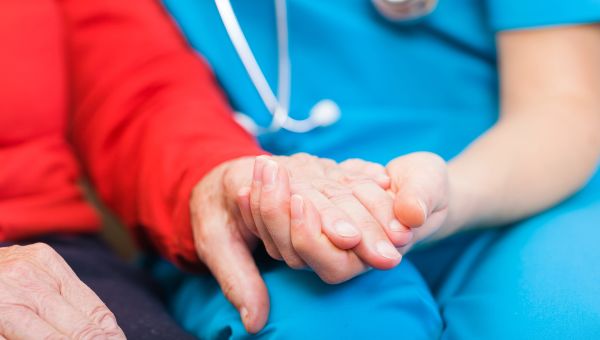
Stay calm
We know: easier said than done. But when you’re stressed and panicking, you enter “fight-or-flight” mode, also known as the stress response. Your body floods with neurochemicals like adrenaline, blood pressure increases and your heart starts beating faster. “The more excited you get, the more… Show More
We know: easier said than done. But when you’re stressed and panicking, you enter “fight-or-flight” mode, also known as the stress response. Your body floods with neurochemicals like adrenaline, blood pressure increases and your heart starts beating faster. “The more excited you get, the more oxygen demand is placed on the heart and that could make the damage worse,” says Hillegas.
Show Less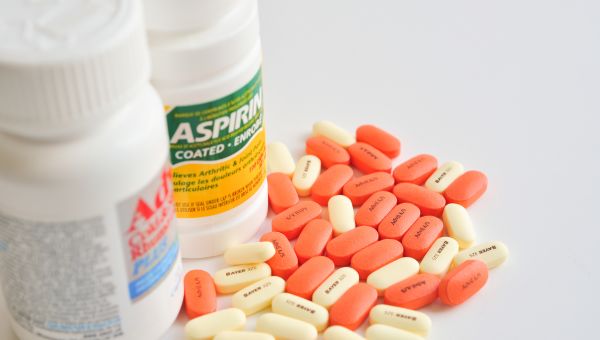
Take an aspirin
The American Heart Association and the American College of Cardiology recommend popping an aspirin for heart attacks as soon as possible. “There’s little downside to taking an aspirin,” adds Hillegas. To understand why, you should know how a heart attack happens.
Most heart attacks start when a… Show More
The American Heart Association and the American College of Cardiology recommend popping an aspirin for heart attacks as soon as possible. “There’s little downside to taking an aspirin,” adds Hillegas. To understand why, you should know how a heart attack happens.
Most heart attacks start when a piece of plaque—fatty buildup on the artery wall—breaks open. Blood cells called platelets then flock to the ruptured plaque and attach themselves. This becomes a clot that can partially or totally block blood flow, depriving the heart of oxygen and destroying muscle tissue.
Aspirin prevents platelets from forming blood clots. Reach for non-coated pills, as coated drugs—designed to be easier on the stomach—take longer to work. You should crush or chew the aspirin no matter what kind it is. And, only take it after you’ve called 911 and asked the operator if it's okay.
Show Less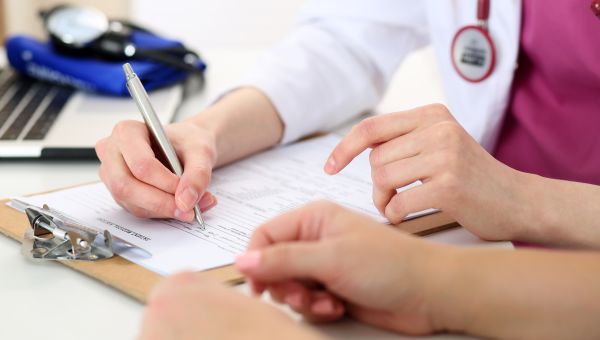
Gather some info
The information you give to ER and ambulance staffs could be critical to your treatment. You’ll want to describe what happened, what you were doing when the pain started and anything that made the pain better or worse, says Hillegas. Healthcare providers will also want to know your heart health… Show More
The information you give to ER and ambulance staffs could be critical to your treatment. You’ll want to describe what happened, what you were doing when the pain started and anything that made the pain better or worse, says Hillegas. Healthcare providers will also want to know your heart health history, including:
- Any family history of heart disease
- Bypass procedures or stents you’ve had
- Medications you’re taking
- Allergies you have to medication
“Also, let healthcare providers know how you’re feeling,” says Hillegas. “They may try to start some treatments like pain control or other medications, and they’re going to want to know if it’s working or not working or if you’re getting worse.” They may try different medications, or even head to a different hospital, like one with a catheterization lab.
Show Less
Understand your treatment
So you survived the initial heart attack, arrived at the hospital and have been treated by medical professionals. Now it’s time to recover, which could take days or months, according to Hillegas. You shouldn’t be a passive participant here. Start educating yourself about heart attack treatments and… Show More
So you survived the initial heart attack, arrived at the hospital and have been treated by medical professionals. Now it’s time to recover, which could take days or months, according to Hillegas. You shouldn’t be a passive participant here. Start educating yourself about heart attack treatments and recovery as soon as the immediate danger has passed.
The first step is understanding what medications you’ll take and how to take them. These may include:
- ACE inhibitors, which lower blood pressure
- Low-dose aspirin which prevent blood clots
- Antiplatelet drugs, which are given with aspirin to help prevent clots
- Beta-blockers, which slow heart rate and cut down on heart stress
- Nitrates, which open up arteries
- Statins, which slow the production of cholesterol
Make a list of all your medications, how many times a day you need them and any special instructions (with food, etc.). You can get a printable form from the FDA here.
Show Less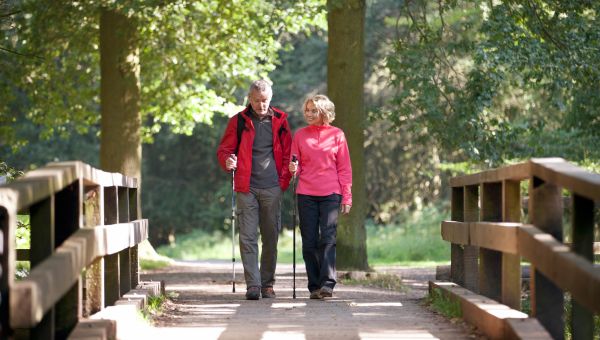
Get back on your feet
After a heart attack you may be placed in a cardiac rehabilitation program. “Administrators of a cardiac rehab program can tailor an exercise schedule for you with goals that are reasonable to reach,” says Hillegas. “They monitor you to make sure you’re not going to overdo it, but you’re working… Show More
After a heart attack you may be placed in a cardiac rehabilitation program. “Administrators of a cardiac rehab program can tailor an exercise schedule for you with goals that are reasonable to reach,” says Hillegas. “They monitor you to make sure you’re not going to overdo it, but you’re working hard enough to make progress, and everything gets reported back to your cardiologist.”
Getting into a cardiac rehab program—which will also help you learn about heart health, change your lifestyle and manage stress—depends on the program’s availability and your insurance coverage, says Hillegas. Even if you’re not placed in a rehab program, your healthcare provider will tell you when it’s safe to start exercising again.
You’ll eventually want to work up to 30 minutes of walking most days a week. “After a heart attack you can’t go out and exercise vigorously right away, but getting back to an exercise program is the best thing you can do,” says Hillegas. “You just have to make sure it’s safe.”
Show Less
Drop bad habits
This one’s a no-brainer: if you’re a smoker, quit right away. Smoking damages blood vessel walls, putting you at increased risk for plaque ruptures and clots. Nicotine also raises your blood pressure. A year after quitting smoking, your risk of dying from coronary heart disease is cut in half.
You’… Show More
This one’s a no-brainer: if you’re a smoker, quit right away. Smoking damages blood vessel walls, putting you at increased risk for plaque ruptures and clots. Nicotine also raises your blood pressure. A year after quitting smoking, your risk of dying from coronary heart disease is cut in half.
You’ll also want to keep your cholesterol levels healthy. In the past it was believed that the more cholesterol you ate, the more it built up in your arteries; that’s why many health experts recommended against eating eggs, for example. Current thinking, however, is that dietary cholesterol plays only a small role in overall blood cholesterol levels.
The real culprits are too much saturated and trans fats. These fats, which come from dairy and meat, tell your liver to produce more cholesterol than you need. Excess cholesterol attaches to the artery walls, leading to atherosclerosis and raising your risk of a heart attack and other potentially deadly complications. Avoid trans fat altogether and eat a diet full of fresh produce, whole grains and lean meats.
Show LessMore On


video
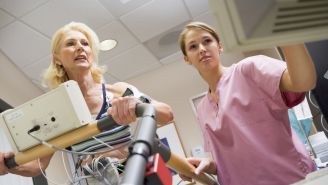
article
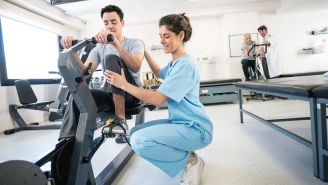
slideshow


video


video
